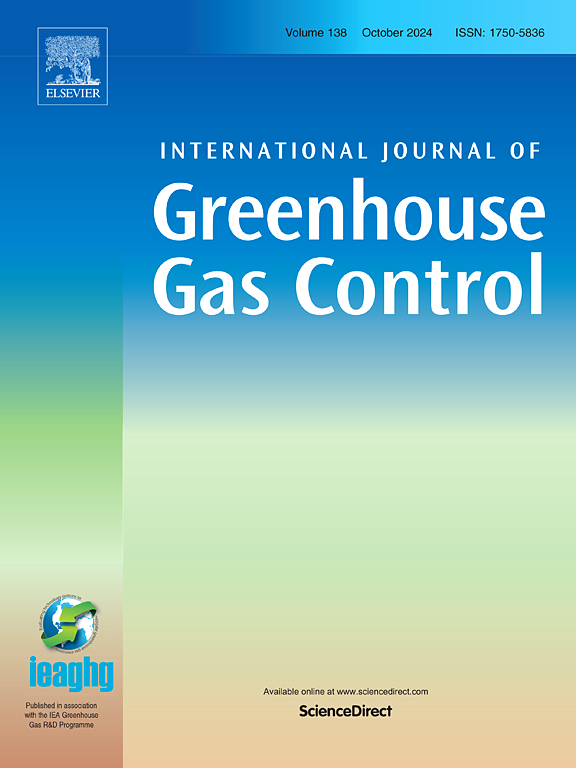A qualitative analysis of key stakeholders' perception of CCS and its value chain in a Danish North Sea storage context – through a socio-economic lens
IF 5.2
3区 工程技术
Q2 ENERGY & FUELS
International Journal of Greenhouse Gas Control
Pub Date : 2025-04-05
DOI:10.1016/j.ijggc.2025.104363
引用次数: 0
Abstract
This socio-economic study explores the key considerations and challenges related to implementing Carbon Capture and Storage (CCS) in Denmark. The research leans on a content analysis based on qualitative data and utilises a methodology that includes in-depth semi-structured interviews with 18 key stakeholders, including Green NGOs, industry/emitters, trade and interest organisations, authorities, and climate experts. The interviews were conducted between 2022 and early 2023 to capture diverse perspectives and interests within the CCS domain. The research findings are grouped thematically into six main areas of interest: Economics, Environment, Health and Safety, Regulation, Technology, and Social Acceptance of CCS. The study highlights the significance of factors such as general trust in the technology, economic viability, regulatory frameworks, environmental impact assessments, safety and health concerns, technology integration, and social acceptance of CCS. The diverse perspectives and interests of the interviewed stakeholders emphasise the socio-economic complexity involved in implementing CCS in Denmark. The qualitative approach adopted in this research allowed for a narrative-based comprehensive exploration of the socio-economic dimensions of CCS. The study fills existing literature gaps within the Danish context, providing a nuanced understanding of the considerations and challenges associated with CCS. The results offer valuable guidance for policymakers, industry professionals, and researchers seeking to develop a sustainable CCS value chain in Denmark from a socio-economic perspective.
通过社会经济视角,对丹麦北海储存环境中主要利益相关者对CCS及其价值链的看法进行定性分析
这项社会经济研究探讨了在丹麦实施碳捕集与封存(CCS)的关键考虑因素和挑战。该研究基于定性数据的内容分析,并采用了一种方法,包括对18个主要利益相关者进行深入的半结构化访谈,包括绿色非政府组织、工业/排放者、贸易和利益组织、当局和气候专家。这些访谈是在2022年至2023年初进行的,以捕捉CCS领域内的不同观点和兴趣。研究结果按主题分为六个主要领域:经济、环境、健康与安全、法规、技术和CCS的社会接受度。该研究强调了对技术的普遍信任、经济可行性、监管框架、环境影响评估、安全和健康问题、技术整合以及CCS的社会接受度等因素的重要性。被采访的利益相关者的不同观点和利益强调了在丹麦实施CCS所涉及的社会经济复杂性。本研究采用的定性方法允许对CCS的社会经济维度进行基于叙事的全面探索。该研究填补了丹麦背景下的现有文献空白,对CCS相关的考虑和挑战提供了细致入微的理解。研究结果为政策制定者、行业专业人士和研究人员从社会经济角度寻求在丹麦发展可持续的CCS价值链提供了有价值的指导。
本文章由计算机程序翻译,如有差异,请以英文原文为准。
求助全文
约1分钟内获得全文
求助全文
来源期刊
CiteScore
9.20
自引率
10.30%
发文量
199
审稿时长
4.8 months
期刊介绍:
The International Journal of Greenhouse Gas Control is a peer reviewed journal focusing on scientific and engineering developments in greenhouse gas control through capture and storage at large stationary emitters in the power sector and in other major resource, manufacturing and production industries. The Journal covers all greenhouse gas emissions within the power and industrial sectors, and comprises both technical and non-technical related literature in one volume. Original research, review and comments papers are included.

 求助内容:
求助内容: 应助结果提醒方式:
应助结果提醒方式:


